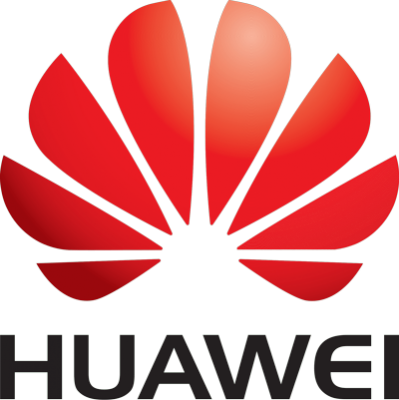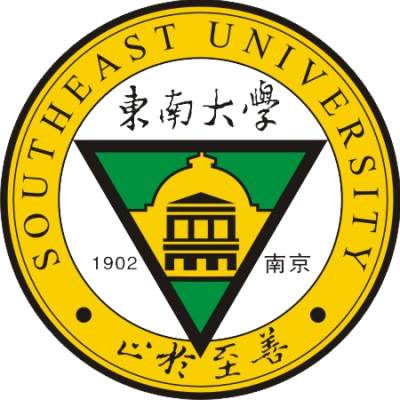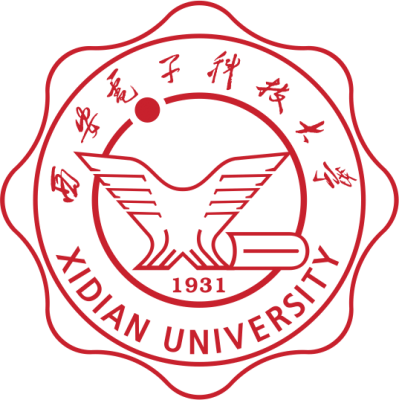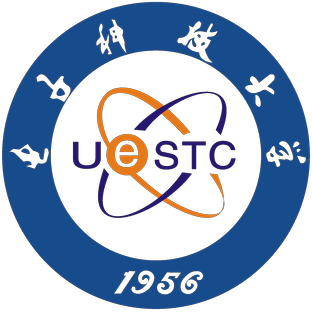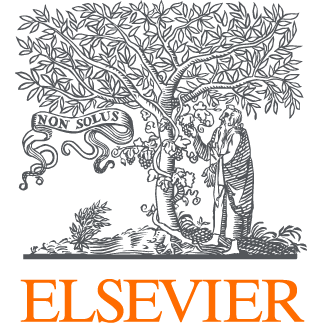Zhu Han, John and Rebecca Moores Professor
ECE Department and CS Department, University of Houston
Resource Allocation for Full Duplex Communication and Networks
Abstract The recent significant progress in realizing full duplex (FD) systems has opened up another promising avenue for increasing the capacity of future wireless networks. In addition to the self-interference cancelation signal processing algorithms, network protocols such as resource management are also essential in the practical design and implementation of FD wireless networks. This talk aims to present the latest development and future directions of resource allocation in different full duplex systems by exploring the network resources in different domains, including power, space, frequency, and device dimensions. Four representative application scenarios are considered: FD MIMO networks, FD cooperative networks, FD OFDMA cellular networks, and FD heterogeneous networks. Resource management problems and novel algorithms in these systems are presented, and key open research directions are discussed. Then, we will concentrate on the use of resource allocation tools (such as optimization and game theory) to analyze and design FD wireless networks.
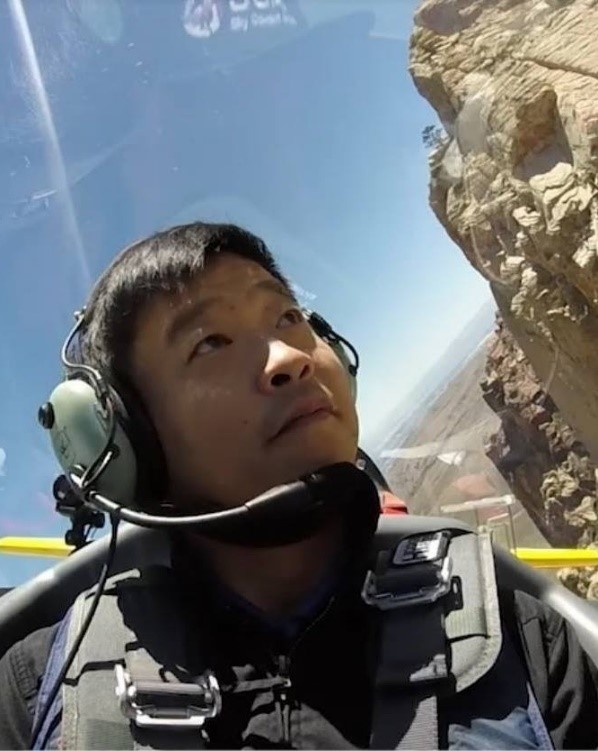 Zhu Han received the B.S. degree in electronic engineering from Tsinghua University, in 1997, and the M.S. and Ph.D. degrees in electrical engineering from the University of Maryland, College Park, in 1999 and 2003, respectively. From 2000 to 2002, he was an R&D Engineer of JDSU, Germantown, Maryland. From 2003 to 2006, he was a Research Associate at the University of Maryland. From 2006 to 2008, he was an assistant professor in Boise State University, Idaho. Currently, he is a John and Rebecca Moores Professor in Electrical and Computer Engineering Department as well as Computer Science Department at University of Houston, Texas. His research interests include security, wireless resource allocation and management, wireless communications and networking, game theory, and wireless multimedia. Dr. Han is an NSF CAREER award recipient 2010. Dr. Han has several IEEE conference best paper awards, and winner of 2011 IEEE Fred W. Ellersick Prize, 2015 EURASIP Best Paper Award for the Journal on Advances in Signal Processing and 2016 IEEE Leonard G. Abraham Prize in the field of Communications Systems (Best Paper Award for IEEE Journal on Selected Areas on Communications). Dr. Han has been IEEE fellow since 2014 and IEEE Distinguished Lecturer since 2015. Dr. Han is 1% highly cited researcher according to Web of Science since 2017.
Zhu Han received the B.S. degree in electronic engineering from Tsinghua University, in 1997, and the M.S. and Ph.D. degrees in electrical engineering from the University of Maryland, College Park, in 1999 and 2003, respectively. From 2000 to 2002, he was an R&D Engineer of JDSU, Germantown, Maryland. From 2003 to 2006, he was a Research Associate at the University of Maryland. From 2006 to 2008, he was an assistant professor in Boise State University, Idaho. Currently, he is a John and Rebecca Moores Professor in Electrical and Computer Engineering Department as well as Computer Science Department at University of Houston, Texas. His research interests include security, wireless resource allocation and management, wireless communications and networking, game theory, and wireless multimedia. Dr. Han is an NSF CAREER award recipient 2010. Dr. Han has several IEEE conference best paper awards, and winner of 2011 IEEE Fred W. Ellersick Prize, 2015 EURASIP Best Paper Award for the Journal on Advances in Signal Processing and 2016 IEEE Leonard G. Abraham Prize in the field of Communications Systems (Best Paper Award for IEEE Journal on Selected Areas on Communications). Dr. Han has been IEEE fellow since 2014 and IEEE Distinguished Lecturer since 2015. Dr. Han is 1% highly cited researcher according to Web of Science since 2017.
Prof. Chan-Byoung Chae
Yonsei University, South Korea
Full duplex Radios: How to evaluate the performance
Abstract: One of the promising technologies for B5G and future WiFi is full-duplex radio, an innovation that is expected to double spectral efficiency. To realize full-duplex in practice, the main challenge is overcoming self-interference, and to do so, researchers have developed self-interference cancellation (SIC) techniques. Most prior work has evaluated link-level performances through a real-time prototype. In this talk, I will talk about software defined radio (SDR) based platforms and a new pure-software based approach to design analog active cancellation. I will also discuss a methodology to evaluation system-level performances.
Chan-Byoung Chae is the Underwood Distinguished Professor in the School of Integrated Technology, College of Engineering, Yonsei University, Korea. He was with the Department of Electrical 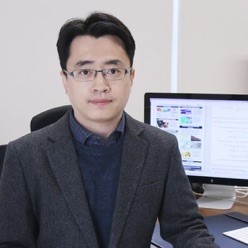 Engineering, Stanford University, CA, USA as a Visiting Associate Professor in 2017. He was a Member of Technical Staff (Research Scientist) at Bell Laboratories, Alcatel-Lucent, Murray Hill, NJ, USA from June 2009 to Feb 2011. Before joining Bell Laboratories, he was with the School of Engineering and Applied Sciences at Harvard University, Cambridge, MA, USA as a Post-Doctoral Research Fellow. He received the Ph.D. degree in Electrical and Computer Engineering from The University of Texas (UT), Austin, TX, USA in 2008, where he was a member of the Wireless Networking and Communications Group (WNCG). Prior to joining UT, he was a Research Engineer at the Advanced Research Lab., the Telecommunications R&D Center, Samsung Electronics, Suwon, Korea, from 2001 to 2005. He was a Visiting Scholar at the WING Lab, Aalborg University, Denmark in 2004 and at University of Minnesota, MN, USA in August 2007. While at Samsung, he participated in the IEEE 802.16e and 3GPP standardization, where he made several contributions and filed a number of related patents. His current research interests include wireless mobile networks and nano (molecular) communications. He is now an Editor-in-Chief of the the IEEE Trans. on Molecular, Biological, and Multi-scale Communications. He has served/serves as an Editor for the IEEE Communications Magazine (2016-present), the IEEE Trans. on Wireless Communications (2012-2017), the IEEE Trans. on Molecular, Biological, and Multi-scale Comm. (2015-present), the IEEE Wireless Communications Letters (2016-present), the IEEE Trans. on Smart Grid (2010-2011), the IEEE ComSoc Technology News (2014), and the IEEE/KICS Jour. of Comm. Networks (2012-present). He has been a Guest Editor for the IEEE Journal on Selected Areas in Communications (special issue on molecular, biological, and multi-scale communications) 2014-2015 and the IEEE Access (special section on molecular communication networks). He is an IEEE Senior Member. Dr. Chae was the recipient/co-recipient of the Young Engineer Award from the National Academy of Engineering of Korea (NAEK) in 2019, the IEEE DySPAN Best Demo Award in 2018, the IEEE/KICS Journal of Communications Networks Best Paper Award in 2018, the Award of Excellence in Leadership of 100 Leading Core Technologies for Korea 2025 from NAEK in 2017, the Yonam Research Award from LG Yonam Foundation in 2016, the IEEE INFOCOM Best Demo Award in 2015, the IEIE/IEEE Joint Award for Young IT Engineer of the Year in 2014, the KICS Haedong Young Scholar Award in 2013, the IEEE Signal Processing Magazine Best Paper Award in 2013, the IEEE ComSoc AP Outstanding Young Researcher Award in 2012, the IEEE VTS Dan. E. Noble Fellowship Award in 200).
Engineering, Stanford University, CA, USA as a Visiting Associate Professor in 2017. He was a Member of Technical Staff (Research Scientist) at Bell Laboratories, Alcatel-Lucent, Murray Hill, NJ, USA from June 2009 to Feb 2011. Before joining Bell Laboratories, he was with the School of Engineering and Applied Sciences at Harvard University, Cambridge, MA, USA as a Post-Doctoral Research Fellow. He received the Ph.D. degree in Electrical and Computer Engineering from The University of Texas (UT), Austin, TX, USA in 2008, where he was a member of the Wireless Networking and Communications Group (WNCG). Prior to joining UT, he was a Research Engineer at the Advanced Research Lab., the Telecommunications R&D Center, Samsung Electronics, Suwon, Korea, from 2001 to 2005. He was a Visiting Scholar at the WING Lab, Aalborg University, Denmark in 2004 and at University of Minnesota, MN, USA in August 2007. While at Samsung, he participated in the IEEE 802.16e and 3GPP standardization, where he made several contributions and filed a number of related patents. His current research interests include wireless mobile networks and nano (molecular) communications. He is now an Editor-in-Chief of the the IEEE Trans. on Molecular, Biological, and Multi-scale Communications. He has served/serves as an Editor for the IEEE Communications Magazine (2016-present), the IEEE Trans. on Wireless Communications (2012-2017), the IEEE Trans. on Molecular, Biological, and Multi-scale Comm. (2015-present), the IEEE Wireless Communications Letters (2016-present), the IEEE Trans. on Smart Grid (2010-2011), the IEEE ComSoc Technology News (2014), and the IEEE/KICS Jour. of Comm. Networks (2012-present). He has been a Guest Editor for the IEEE Journal on Selected Areas in Communications (special issue on molecular, biological, and multi-scale communications) 2014-2015 and the IEEE Access (special section on molecular communication networks). He is an IEEE Senior Member. Dr. Chae was the recipient/co-recipient of the Young Engineer Award from the National Academy of Engineering of Korea (NAEK) in 2019, the IEEE DySPAN Best Demo Award in 2018, the IEEE/KICS Journal of Communications Networks Best Paper Award in 2018, the Award of Excellence in Leadership of 100 Leading Core Technologies for Korea 2025 from NAEK in 2017, the Yonam Research Award from LG Yonam Foundation in 2016, the IEEE INFOCOM Best Demo Award in 2015, the IEIE/IEEE Joint Award for Young IT Engineer of the Year in 2014, the KICS Haedong Young Scholar Award in 2013, the IEEE Signal Processing Magazine Best Paper Award in 2013, the IEEE ComSoc AP Outstanding Young Researcher Award in 2012, the IEEE VTS Dan. E. Noble Fellowship Award in 200).




